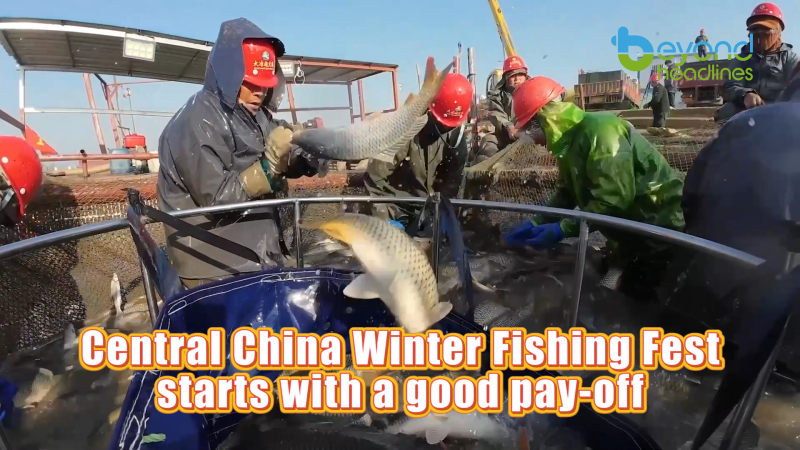Chen Jiming/Elephant Papa
My kids have their mother to look after them, but all these baby elephants that sent here are no longer cared for by adult elephants, and they must rely on human kindness
Burmie Wong/Host
Today, I've come to visit the Asian elephant and their father, here is the largest tropical forest nature reserve in Yunnan of China.
This is Chen Jiming, colloquially known as ‘Elephant Papa’. He has been working here at the Asian Elephant Rescue and Breeding Center for 16 years. He is a father to many, two of his children are at home, and in front of him are two more - Yang Niu and Long Long.
Chen Jiming:
Yang Niu, you see, you have visitors coming to see you from a far away place
Burmie:Yang Niu is getting very big. Was she small when she came here?
Chen Jiming: When she arrived, she only came up to my knee, about 81 centimeters.
Burmie:Only that tell. Now she’s even taller than us.
Chen Jiming: Just this tall. She’s already 1.80 to 1.90 meters tall.
Due to an umbilical cord infection, Yang Niu was abandoned just 7 days after birth. Barely clinging to life, she stumbled into a villager's home in Puer City. Later, she was brought to the rescue center. She was raised on goat milk, so we named her ‘Yang Niu’. Now she's almost 9 years old.
Chen Jiming: Two, three, you are so greedy
From March 2020 to August 2021, more than a dozen wild Asian elephants made a magical journey from north to south, attracting worldwide attention. Long Long was among those migrating elephants. But his left front leg got tangled up and injured so he was abandoned by the herd in a tea plantation. At that time, Long Long's wound was severely infected, and his life was in danger. Fortunately, he was promptly brought to the rescue center for treatment. Now, he has grown into a healthy and active young lad.
Asian elephants are the largest terrestrial animals in Asia.
In our country, wild Asian elephants mainly inhabit Xishuangbanna, Puer, and Lincang in Yunnan Province.
Living in the wild, the risk of injury is very high. If untreated, recovery is unlikely and even risks their lives.
The local government took the lead in establishing the Xishuangbanna Asian Elephant Rescue and Breeding Center. Here, there is a group of ‘elephant papas’ who protect and rescue abandoned, injured, and psychologically traumatized wild Asian elephants. While arriving at the rescue center with fear and pain, it is the meticulous care of these ‘elephant papas’ that soothes their wounds.
So far, the rescue center has successfully rescued 8 wild Asian elephants and bred 1 baby elephant. The ‘Elephant Papas’ work more than 10 hours a day, accompanying the rescued Asian elephants day and night, and nurturing the young elephants with love to help them grow strong. Chen Jiming said he has long regarded the elephants as his own children.
Burmie: How does taking care of baby elephants compare to raising children?
Chen Jiming: To be honest, I've never been so dedicated to my own children, actually. I've devoted more time to these elephants.
Every day, Chen Jiming takes the elephants for a walk and to do their business. With just a glance at the elephant dung, he knows how the baby elephants are eating. He also says that elephants are the gardeners of the forest, every move they make contributes to nature. Even their dung is precious.
Chen Jiming: You see, all of this is what it has eaten. What's this one? Pineapple leaf
Burmie: This elephant seems to prefer pineapple.
Chen Jiming: You see, there are a lot of coarse fibres when you peel it open. Do you want to try it?
Burmie: Ah, no thanks.
Chen Jiming:
Elephants are the ecological engineers responsible for all the rainforest around us. They help plants and trees to propagate, and then provide all the inhabitants of the forest floor with nutrients to grow.
Elephant Papa describes the Asian elephants as the engineers of this valley as they shape and alter the environment around them. The responsibility of humans to care for these elephants extends beyond just compassion.
The elephants, in turn, care for the environment and restore a natural balance to their ecosystem. So when we help Asian elephants, they are also helping us.
The Dai people have long considered elephants as auspicious symbols. In Xishuangbanna, imagery and sculptures of elephants are everywhere. Asian elephants have chosen this place as their home, and the people of Yunnan spare no effort in protecting their habitat. It's a story of harmonious coexistence between humans and nature that continues to survive and thrive.











![[GBA Highlights] Breaking Barriers: Tianhe Sports Center Welcomes Everyone with Open Arms](https://img.beyondheadlines.hk/articles/cover/20250411/7e68568a58a36a48ece50dc6fdef8d5d.jpg!w800)
